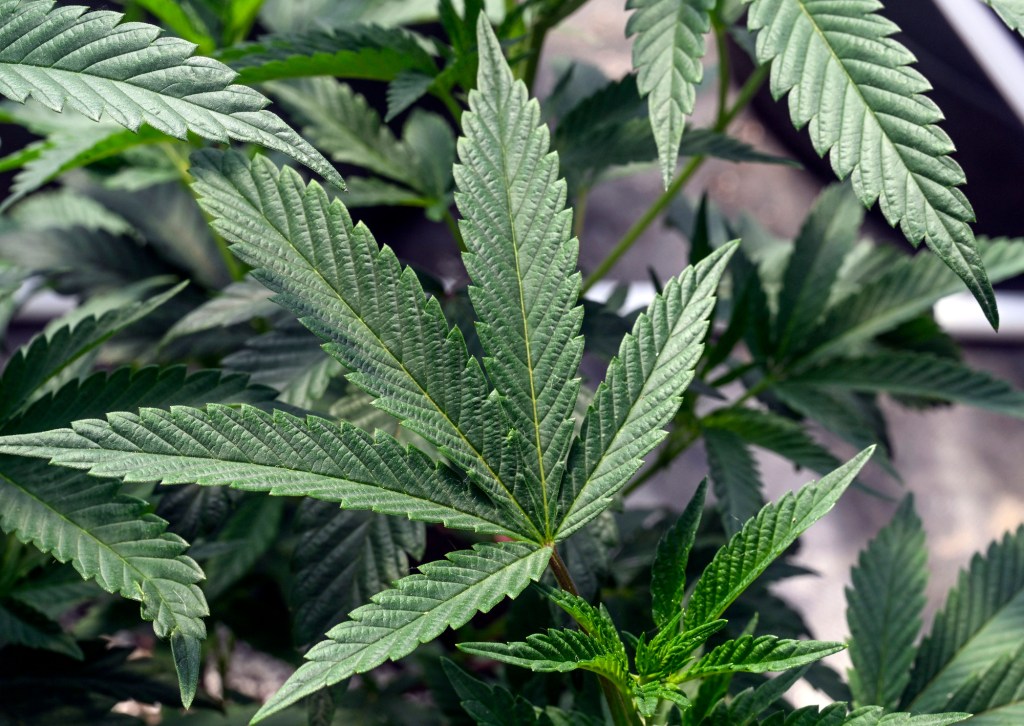
By Jennifer Peltz | Associated Press
NEW YORK — The news lit up the world of weed: U.S. health regulators are suggesting that the federal government loosen restrictions on marijuana.
Specifically, the federal Health and Human Services Department has recommended taking marijuana out of a category of drugs deemed to have “no currently accepted medical use and a high potential for abuse.” The agency advised moving pot from that “Schedule I” group to the less tightly regulated “Schedule III.”
So what does that mean, and what are the implications? Read on.
FIRST OF ALL, WHAT HAS ACTUALLY CHANGED? WHAT HAPPENS NEXT?
Technically, nothing yet. Any decision on reclassifying — or “rescheduling,” in government lingo — is up to the Drug Enforcement Administration, which says it will take up the issue. The review process is lengthy and involves taking public comment.
Still, the HHS recommendation is “paradigm-shifting, and it’s very exciting,” said Vince Sliwoski, a Portland, Oregon-based cannabis and psychedelics attorney who runs well-known legal blogs on those topics.
“I can’t emphasize enough how big of news it is,” he said.
It came after President Joe Biden asked both HHS and the attorney general, who oversees the DEA, last year to review how marijuana was classified. Schedule I put it on par, legally, with heroin, LSD, quaaludes and ecstasy, among others.
Biden, a Democrat, supports legalizing medical marijuana for use “where appropriate, consistent with medical and scientific evidence,” White House press secretary Karine Jean-Pierre said Thursday. “That is why it is important for this independent review to go through.”
SO IF MARIJUANA GETS RECLASSIFIED, WOULD IT LEGALIZE RECREATIONAL POT NATIONWIDE?
No. Schedule III drugs — which include ketamine, anabolic steroids and some acetaminophen-codeine combinations — are still controlled substances.
They’re subject to various rules that allow for some medical uses, and for federal criminal prosecution of anyone who traffics in the drugs without permission. (Even under marijuana’s current Schedule I status, federal prosecutions for simply possessing it are few: There were 145 federal sentencings in fiscal year 2021 for that crime, and as of 2022, no defendants were in prison for it.)
It’s unlikely that the medical marijuana programs now licensed in 38 states — to say nothing of the legal recreational pot markets in 23 states — would meet the production, record-keeping, prescribing and other requirements for Schedule III drugs.
But rescheduling in itself would have some impact, particularly on research and on pot business taxes.
WHAT WOULD THIS MEAN FOR RESEARCH?
Because marijuana is on Schedule I, it’s been very difficult to conduct authorized clinical studies that involve administering the drug. That has created something of a Catch-22: calls for more research, but barriers to doing it. (Scientists sometimes rely instead on people’s own reports of their marijuana use.)
Schedule III drugs are easier to study.
In the meantime, a 2022 federal law aimed to ease marijuana research.
WHAT ABOUT TAXES (AND BANKING)?
Under the federal tax code, businesses involved in “trafficking” in marijuana or any other Schedule I or II drug can’t deduct rent, payroll or various other expenses that other businesses can write off. (Yes, at least some cannabis businesses, particularly state-licensed ones, do pay taxes to the federal government, despite its prohibition on marijuana.) Industry groups say the tax rate often ends up at 70% or more.
The deduction rule doesn’t apply to Schedule III drugs, so the proposed change would cut pot companies’ taxes substantially.
They say it would treat them like other industries and help them compete against illegal competitors that are frustrating licensees and officials in places such as New York.
“You’re going to make these state-legal programs stronger,” says Adam Goers, an executive at medical and recreational pot giant Columbia Care. He co-chairs a coalition of corporate and other players that’s pushing for rescheduling.
Rescheduling wouldn’t directly affect another pot business problem: difficulty accessing banks, particularly for loans, because the federally regulated institutions are wary of the drug’s legal status. The industry has been looking instead to a measure called the SAFE Banking Act. It has repeatedly passed the House but stalled in the Senate.
ARE THERE CRITICS? WHAT DO THEY SAY?
Indeed, there are, including the national anti-legalization group Smart Approaches to Marijuana. President Kevin Sabet, a former Obama administration drug policy official, said the HHS recommendation “flies in the face of science, reeks of politics” and gives a regrettable nod to an industry “desperately looking for legitimacy.”
Some legalization advocates say rescheduling weed is too incremental. They want to keep focus on removing it completely from the controlled substances list, which doesn’t include such items as alcohol or tobacco (they’re regulated, but that’s not the same).
National Organization for the Reform of Marijuana Laws Deputy Director Paul Armentano said that simply reclassifying marijuana would be “perpetuating the existing divide between state and federal marijuana policies.” Minority Cannabis Business Association President Kaliko Castille said rescheduling just “re-brands prohibition,” rather than giving an all-clear to state licensees and putting a definitive close to decades of arrests that disproportionately pulled in people of color.
“Schedule III is going to leave it in this kind of amorphous, mucky middle where people are not going to understand the danger of it still being federally illegal,” he said.
Associated Press writer Colleen Long contributed from Washington.
𝗖𝗿𝗲𝗱𝗶𝘁𝘀, 𝗖𝗼𝗽𝘆𝗿𝗶𝗴𝗵𝘁 & 𝗖𝗼𝘂𝗿𝘁𝗲𝘀𝘆: www.mercurynews.com
𝗙𝗼𝗿 𝗮𝗻𝘆 𝗰𝗼𝗺𝗽𝗹𝗮𝗶𝗻𝘁𝘀 𝗿𝗲𝗴𝗮𝗿𝗱𝗶𝗻𝗴 𝗗𝗠𝗖𝗔,
𝗣𝗹𝗲𝗮𝘀𝗲 𝘀𝗲𝗻𝗱 𝘂𝘀 𝗮𝗻 𝗲𝗺𝗮𝗶𝗹 𝗮𝘁 [email protected]


